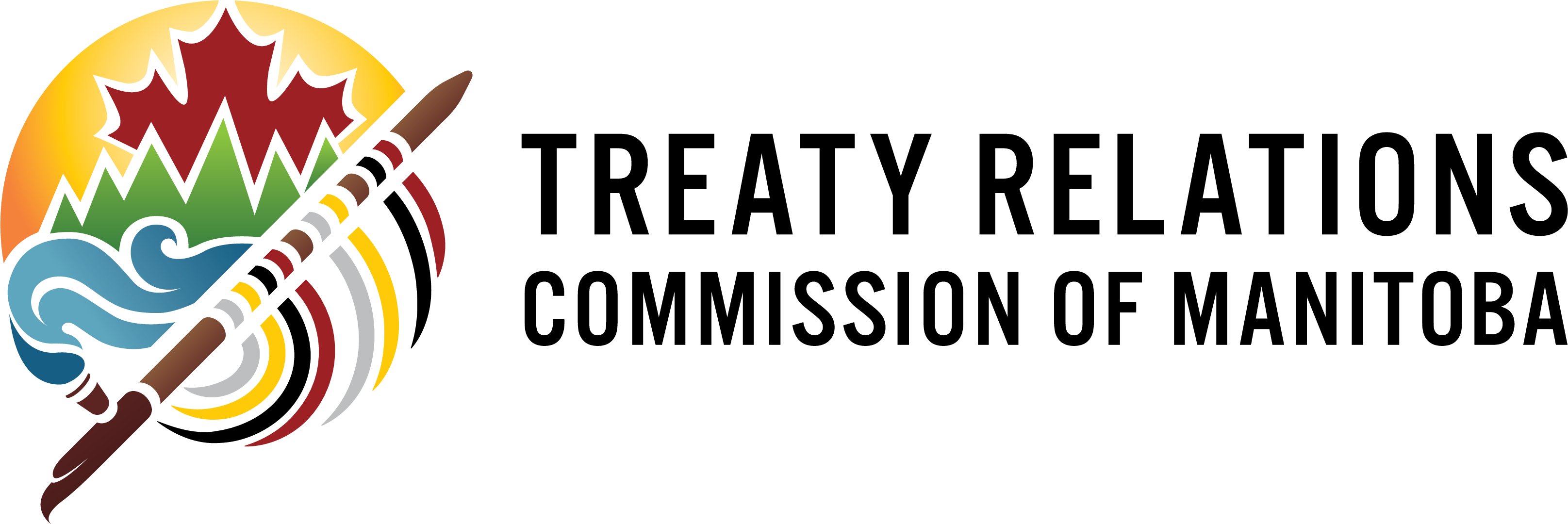Speaker Profiles
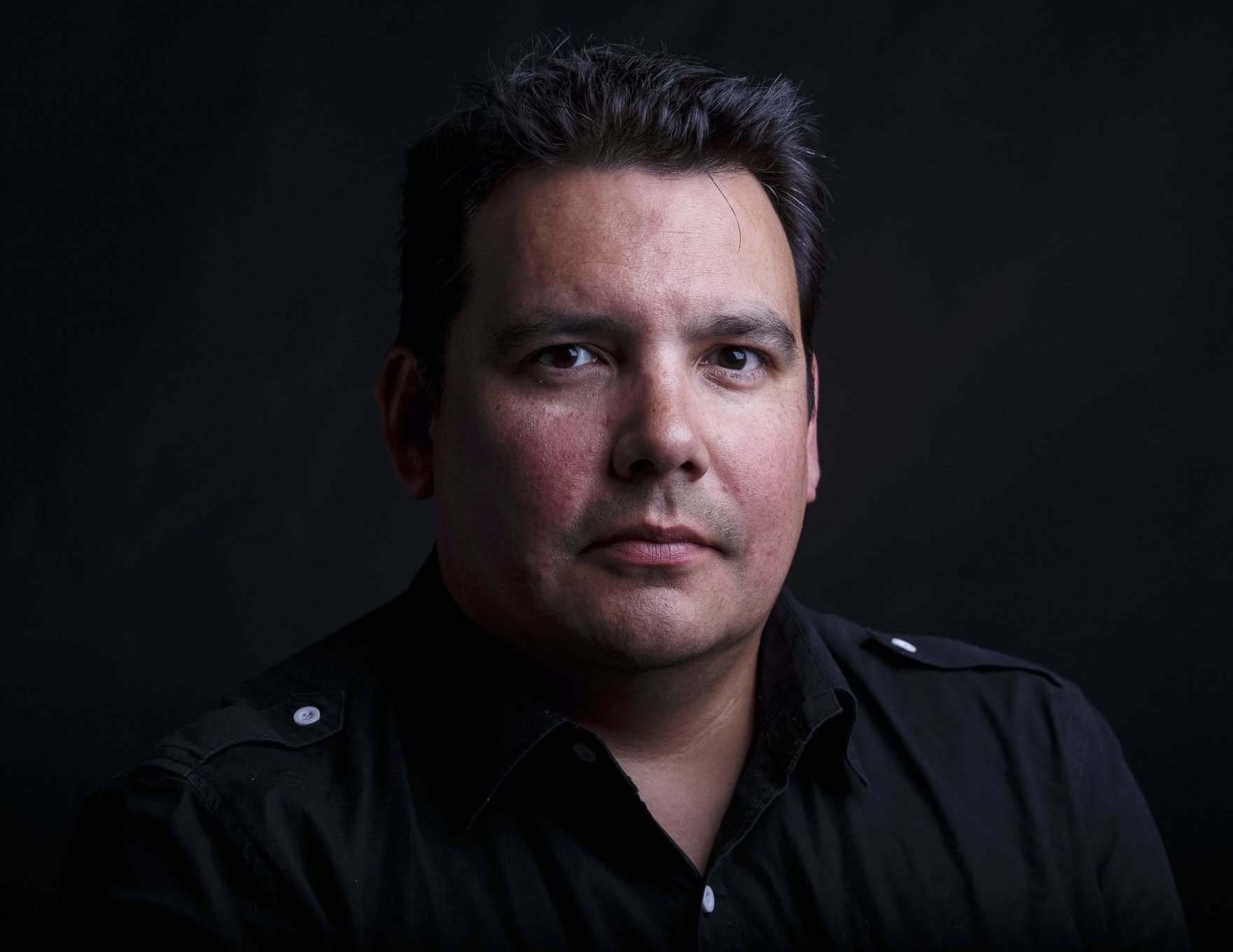
Niigaanwewidam James Sinclair
Niigaanwewidom James Sinclair is Anishinaabe and originally from St. Peter’s, Little Peguis Indian Settlement near Selkirk, Manitoba. He is a regular commentator on Indigenous issues for CTV, CBC, and APTN and his critical and creative work can be found in books such as The Exile Edition of Native Canadian Fiction and Drama, newspapers like The Guardian, and online with CBC Books: Canada Writes. He is also the co-editor of the award-winning Manitowapow: Aboriginal Writings from the Land of Water, Highwater Press, 2011 and Centering Anishinaabeg Studies: Understanding the World Through Stories, Michigan State University Press, 2013. Currently at the University of Manitoba, Niigaan teaches courses in Indigenous literatures, cultures, histories, and politics and is a proud Treaty One member.
Topics:
- Historic and Contemporary Issues Surrounding the Treaties
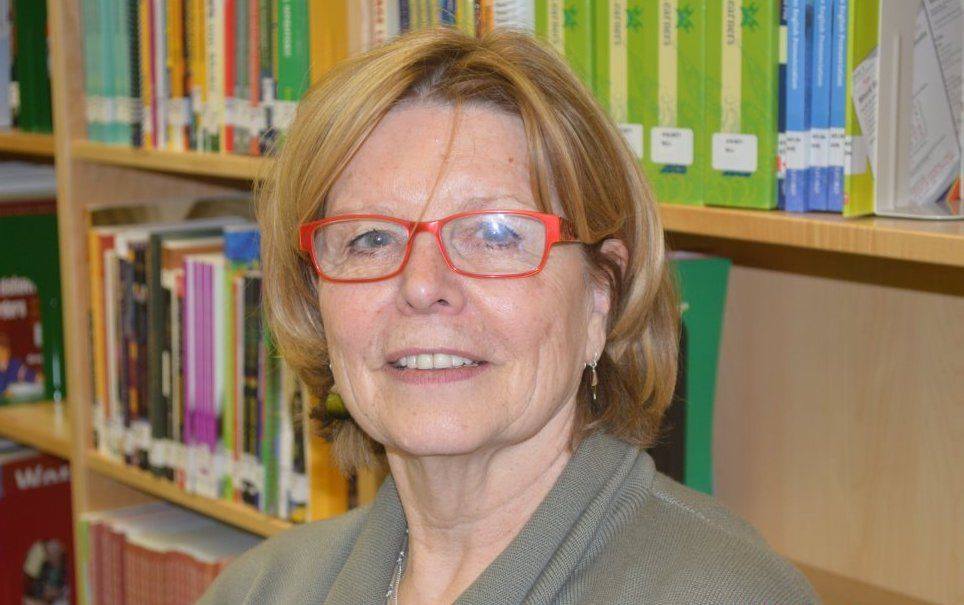
Dr. Jean Friesen
Dr. Jean Friesen is a Professor of History at the University of Manitoba who specializes in the history of Aboriginal-European relations particularly in 19th century. She has written about Treaties 1 & 3 and has served as an expert witness in court cases related to hunting and resource use issues. Jean has also worked for 6 years at the National Museum in Ottawa; from 1990 to 2003 she represented the Wolseley Constituency in the Manitoba Legislature and from 1999-2003 was Manitoba’s Minister of Intergovernmental Affairs and Deputy Premier of Manitoba.
Topics:
- Reflections on the making of Treaty No. 1 & Treaty No. 3
- History of Manitoba & Canada
- History of the Numbered Treaties
- First Nations-Settler Contact
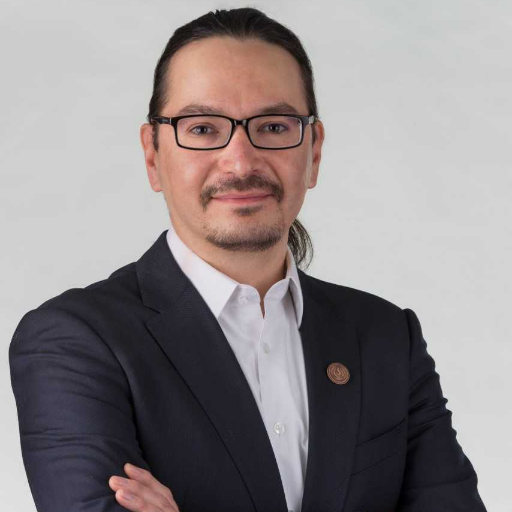
Kevin Lamoureux
Kevin Lamoureux is a Faculty member at the University of Winnipeg and a well-known public speaker. He has served as Associate Vice President for the University of Winnipeg, Education Lead for the National Centre for Truth and Reconciliation, and as Scholar in Residence for several school divisions.
Topics:
- Settler & Colonial and Indigenous Relationships
- Treaty Relationship since Newcomer contact
- Treaty Education History of Manitoba & Canada
- Contemporary Indigenous Issues and Anti-Racist Education
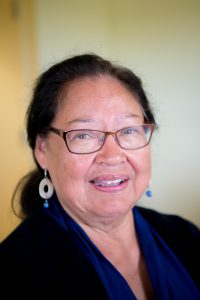
Elder Florence Paynter
A Member of the Sandy Bay First Nation Treaty Territory 1 and a Norway House Cree Nation Treaty Territory 5A. Florence is a fourth degree Mide Anishinabekwe and holds a Masters Degree in Education from the University of Manitoba. Florence speaks Anishinabe fluently and has been involved in many language and cultural initiatives and ceremonies. She helps teach the cultural and spiritual knowledge and traditions of the Anishinabe people. Florence attended residential school and works hard to teach about the history of our people, the legacy of Indian residential schools, and its impact on us as people. She believes that we can be proud of who we are by learning about our own families, our own histories and our own languages.
Topics:
- Elder’s Perspective on Treaties and the Treaty Relationship
- Residential School System

Allen Sutherland
Allen Sutherland, also known by his spirit name Waabishki Mazinazoot Michtaatim, of the Bizhiw Doodem (Lynx Clan), Anishinaabe, and member of Skownan First Nation, Treaty 2 Territory.
Allen’s strong Anishinaabek roots run deep and always present, leaving him in the unique position of being a connection between both Traditional and Contemporary World. Allen had the opportunity of working within First Nations, Federal and Provincial Governments, including grassroots community work for over 30 years. Allen provides facilitation and training under his own company of WHITE SPOTTED HORSE, Inc, since 2007, where he is often a sought-after resources person on the history and culture of the Anishinaabe of Turtle Island. He is also the creator of the Canadian Indigenous Historical Timeline Posters and the Red River de Metis Historical Timeline Posters. Allen has been a member of the TRCM Speakers Bureau since 2008.
Allen is the LODGE KEEPER of GINEW HEALING LODGE and is employed with the West Region Child & Family Services and Anishinaabe Child & Family Services as the KNOWLEDGE KEEPER EAST.
Lives at Cooks Creek, Manitoba, 20 minutes Northeast of Winnipeg, Manitoba Canada. In the Heart of Turtle Island.
Topics:
- Historical Timeline (Treaty relationship since Newcomer contact)
- Treaty No. 1
- Anishinaabe Spirituality
- Spirit and Intent of the Treaties
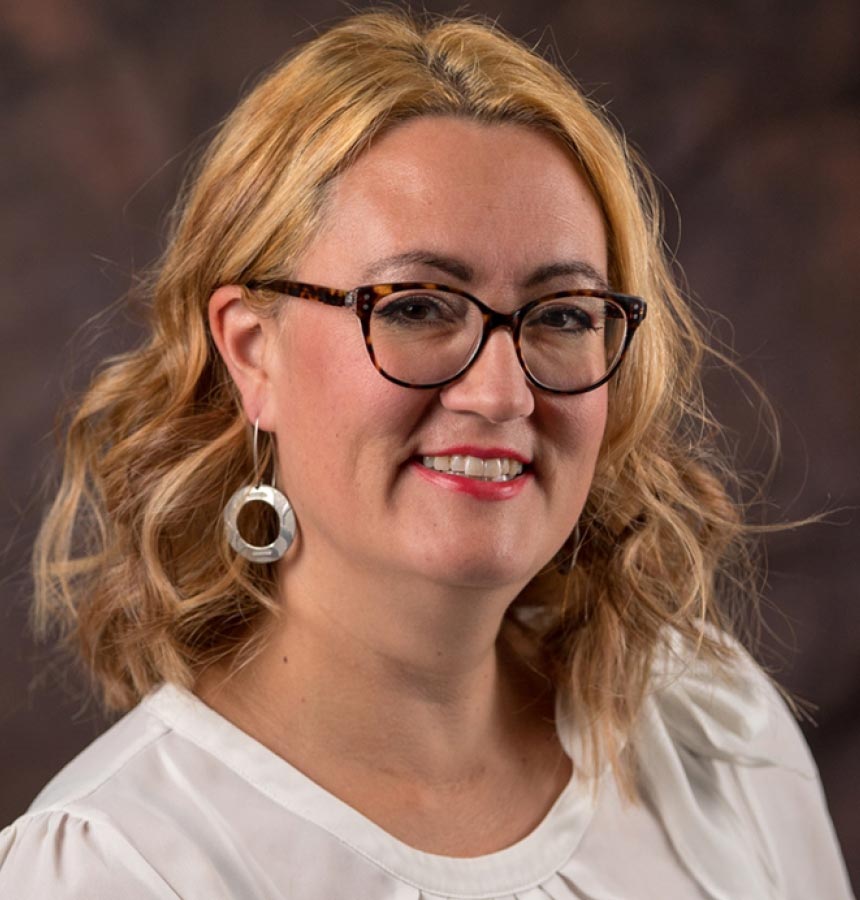
Brenda Gunn
Brenda L. Gunn, Professor, Robson Hall Faculty of Law. She is currently the Academic and Research Director at the National Centre for Truth and Reconciliation She has a B.A. from the University of Manitoba and a J.D. from the University of Toronto. She completed her LL.M. in Indigenous Peoples Law & Policy at the University of Arizona. She articled with Sierra Legal Defence Fund, now Eco-justice Canada). She was called to the bars of Law Society of Upper Canada and Manitoba. Brenda also worked at a community legal clinic in Rabinal, Guatemala on a case of genocide submitted to the Inter-American Commission of Human Rights. She has also worked with First Nations on Aboriginal and treaty rights issues in Manitoba.
Topics:
- International Law
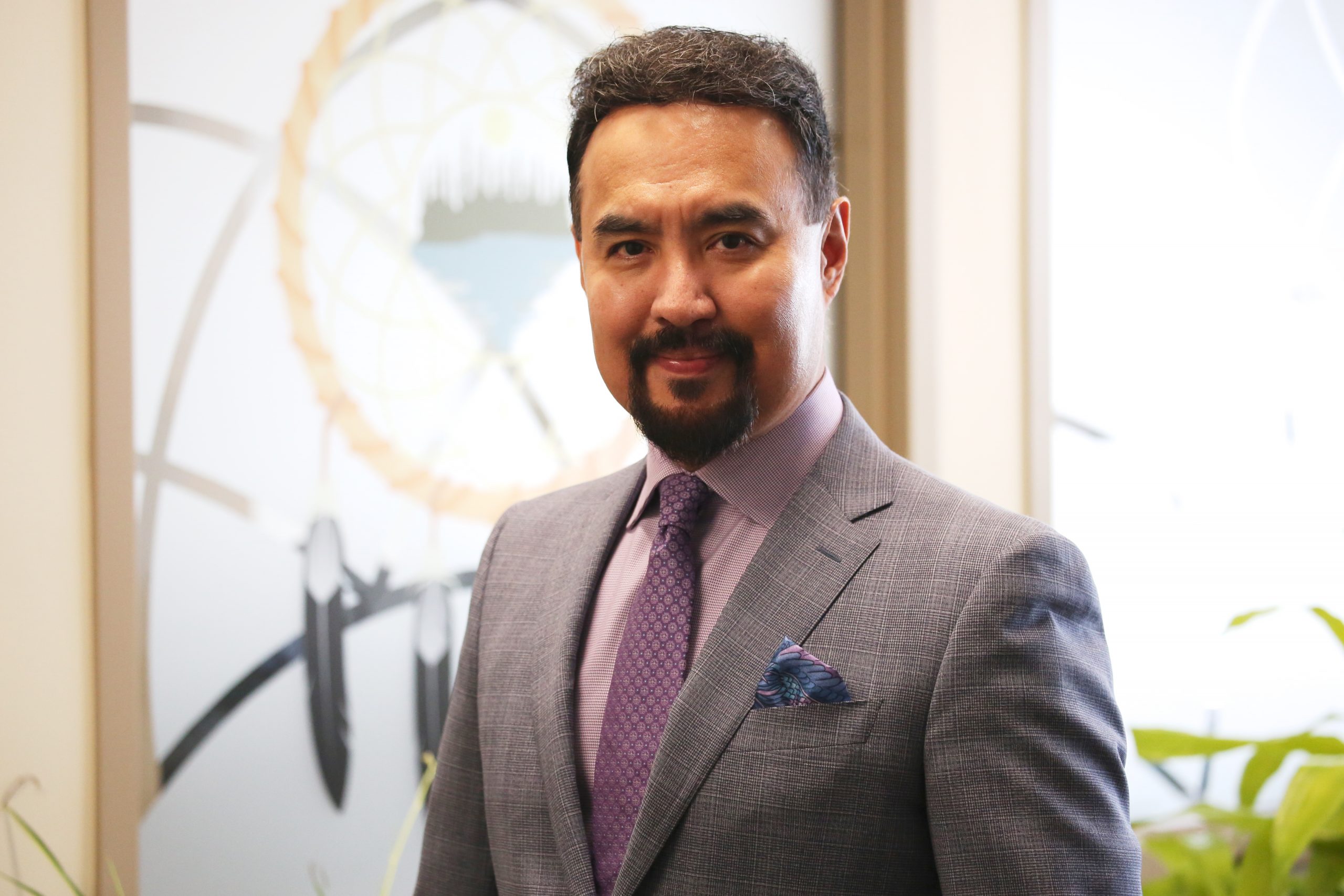
Chris Henderson
Chris Henderson is Anishinaabe and a First Nations member of the Black River First Nation which is signatory to Treaty No. 5, and a former band member of the Sapotaweyak Cree Nation, which is signatory to Treaty No. 4.
Chris is currently the Executive Director of the Treaty Land Entitlement Committee, “TLEC” of Manitoba Inc. “TLEC’s” mission is to provide technical support and assistance to its Member First Nations in the implementation of their individual Treaty Land Entitlement, TLE agreements under the terms of the Manitoba Treaty Land Entitlement Framework Agreement.
From 2004 to 2007, Chris successfully served as the Southern Grand Chief of the Southern Chiefs’ Organization of Manitoba, representing 36 First Nations in southern Manitoba. During this time, he commissioned a comparative analysis of the “TLE” implementation processes in Saskatchewan and Manitoba. The intent was to draw attention to the slow-pace of the reserve creation process in Manitoba under the “TLE” Framework Agreement. As a result of this report, Canada and Manitoba later both declared they were committed to accelerating the TLE land conversion process in Manitoba.
Topics:
- General Treaties & Treaty relationship
- Treaty Land Entitlement
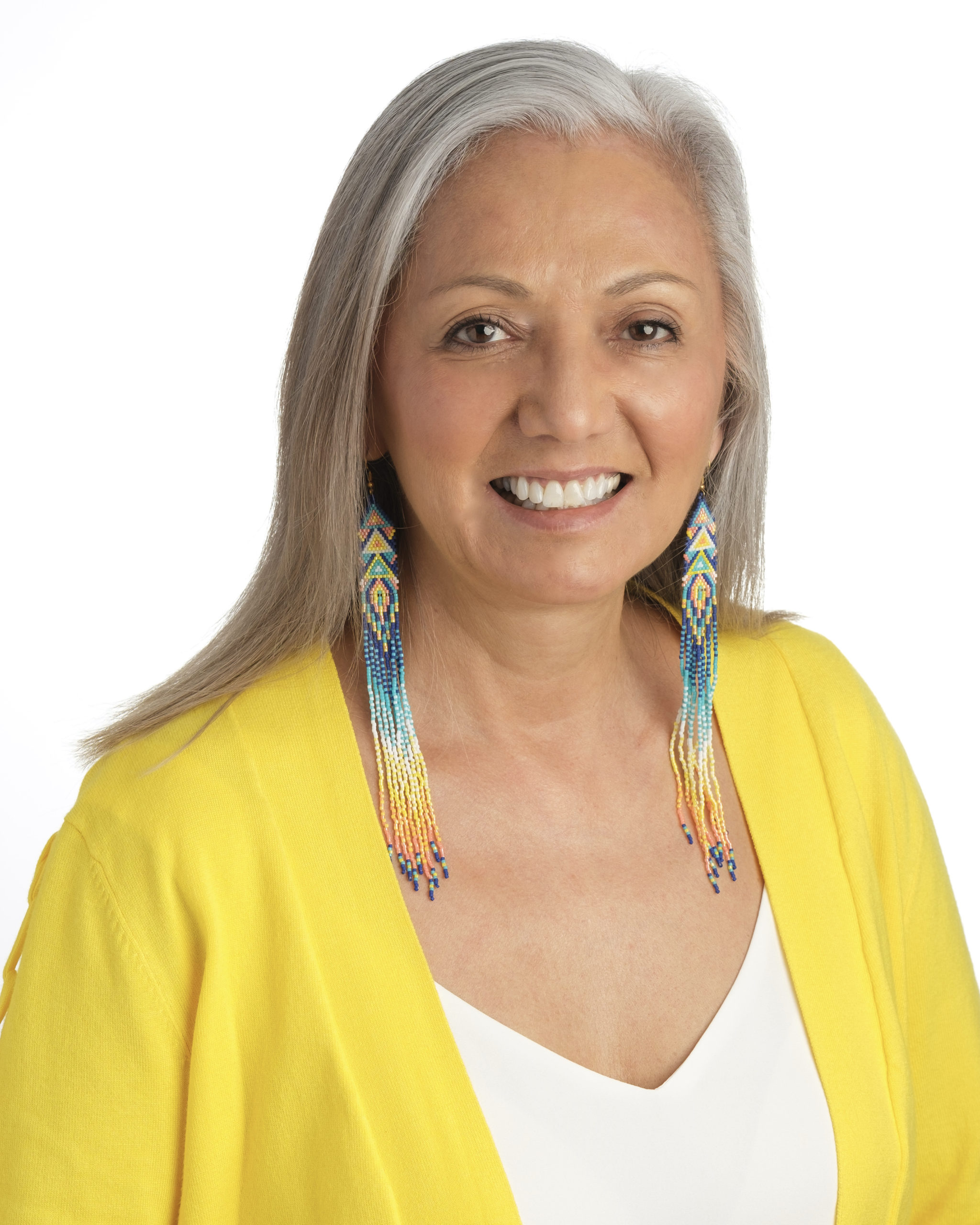
Renée McGurry
Renée McGurry recently left her position with the Treaty 2 Government after two years of program development for the ‘Earth Lodge’. She has worked as a workshop facilitator and classroom support teacher for the Treaty Relations Commission of Manitoba for the past six years. Renée is a member of the Pinaymootang nation in Northern Manitoba. She retired from education in Winnipeg in 2015 after 35 years in education, with the last 8 years as the lead teacher for Indigenous Education in St. James-Assiniboia School Division. Renée continues to provide organizations, educators and allies with cultural and reconciliation workshops, cultural support, and resources both locally and nationally.
Topics:
- Introducing the treaties in K-8 classrooms
- Land acknowledgements with students, educators and schools
- Orange Shirt Day presentations
- In school supports for classrooms, staff and administrators
- Professional Development for schools and school divisions
- Indigenous education program planning with school staff and leaders.
- Hands on activities: map work, benefits of treaties, classroom treaties, treaty medals, treaty vests, seven teachings, First Nations worldviews, land acknowledgements, story of relationships and making treaties

Andrea Gallagher – Courteau
Andrea Gallagher-Courteau is an Anishinaabe citizen of Sagkeeng First Nation and a graduate of the University of Manitoba. She received a Bachelor of Arts Honours degree in Political Studies and Bachelor of Arts degree in Native Studies. She went on to complete her Masters of Arts degree in Political Studies, with a focus on Canadian and Indigenous politics.
In her professional life, Andrea is passionate about Indigenous education, having spent time at the Treaty Relations Commission of Manitoba, the Manitoba Department of Education, and as a sessional instructor at both the University of Manitoba and the Canadian Mennonite University.
As a French-speaker, Andrea strongly believes in the importance of the Treaty relationship and the need for reconciliation in Canada.
Topics:
- Indigenous and Canadian history
- Spirit and Intent of the Treaties
- Aspects of indigenous culture
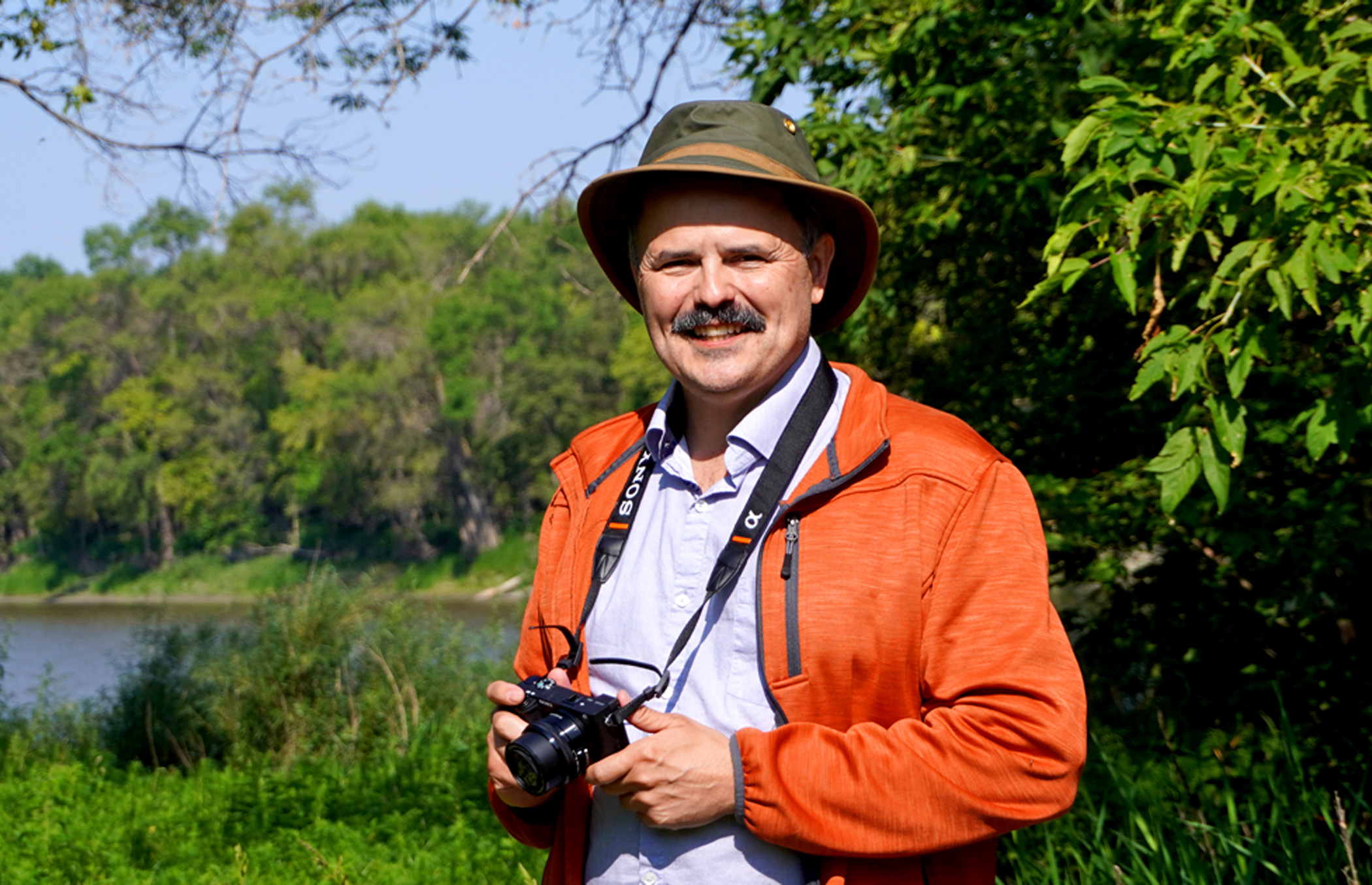
Steve Greyeyes
Steve Greyeyes is an Indigenous Educator of British and Cree descent and is a member of Muskeg Lake Cree Nation from Saskatchewan. In his ten years with Parks Canada, Steven became skilled at sharing our Treaty history with school groups and the wider Canadian public.
As a teacher Steve has the opportunity to infuse an Indigenous perspective into the curriculum. Steve’s own family history with the Indian Act and residential school system are woven into his presentations in a lively and entertaining manner. Steve has presented at the U of W and has contributed to Aboriginal inclusion policy in Manitoba schools.
Topics:
- Historic and Contemporary Issues Surrounding the Treaties
- Indigenous Perspectives on Treaty History
- Residential School System
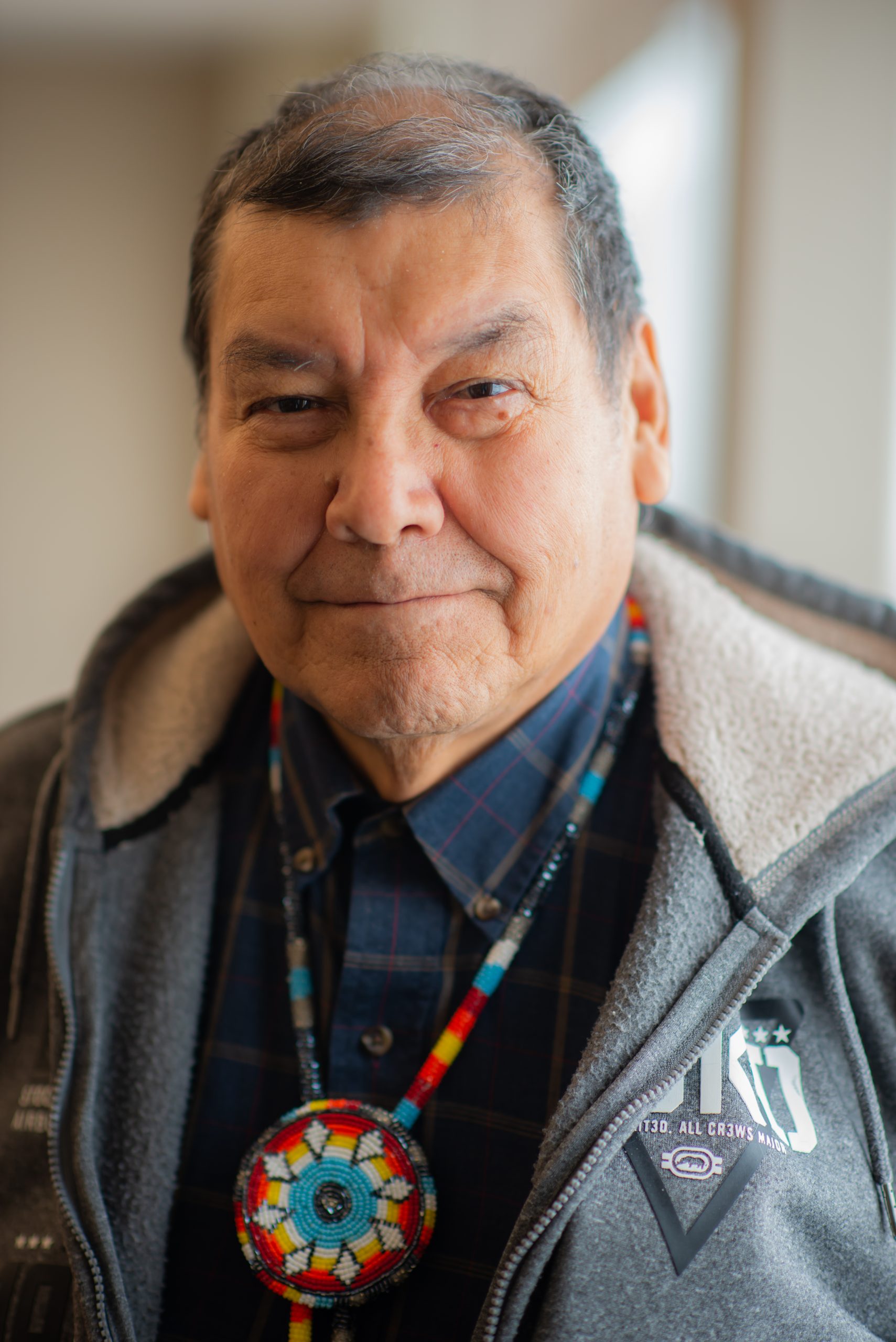
Elder William G. Lathlin
From The Opaskwayak Cree Nation and is the Treaty 5 Elder. His first teachers were his parents, Liz and George Lathlin, and his grandparents, Horace Whitehead and Mary Lathlin. William was raised with three sisters and three brothers in winter camps until he was sent to Prince Albert Residential School, which he attended from 1950-1954. He obtained a Grade 7 education and went on to marry Myra Personius and raise five children. He sponsored his own Diploma in Business Management, served as a Band Councillor for Opaskwayak Cree Nation for 24 years from 1974 to 1997, and then as Chief of Opaskwayak Cree Nation for one term from 1997 to 1999. William was committed to improvement in the areas of health, education, economic and social development for Opaskwayak Cree Nation. He currently involves himself with youth issues by promoting education and teaches at the school when he is asked. William is currently developing a land based/traditional teachings program for disengaged youth in his community.
Topics:
- Treaty No. 5
- Elder’s Perspective on Treaties and the Treaty Relationship
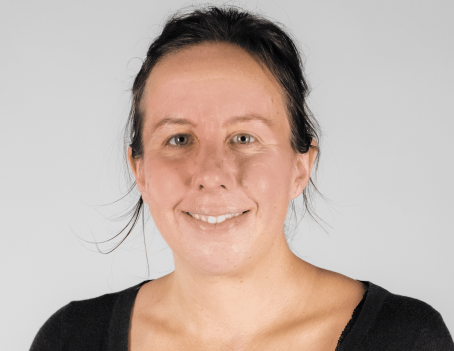
Dr. Karine Duhamel
Dr. Karine Duhamel is Anishinaabe-Métis and holds a Bachelor of Education from Lakehead University and a Masters and Ph.D. in history from the University of Manitoba. She has expertise and experience in diverse areas that impact Indigenous communities, including education, museum curation, and law. She served as Director of Research for the National Inquiry into Missing and Murdered Indigenous Women and Girls until the end of its mandate in 2019, and has been working, since then, on the implementation of of the National Inquiry’s Calls for Justice. Currently, Karine is Director of Indigenous Strategy for the Social Sciences and Humanities Research Council of Canada. She also consults on various projects aiming to increase safety for Indigenous women, girls, and 2SLGBTQQIA+ people, as well as serves as a member of several boards and councils, including the Canadian Historical Association, the International Council on Archives, and on the Debwewin Truth Project Advisory Council.
Topics:
- Historic and Contemporary Issues Surrounding the Treaties
- Missing and Murdered Indigenous Women and Girls
- Residential School System
- Spirit and Intent of the Treaties

Dr. Maureen Matthews
Dr. Maureen Matthews is the former Curator of Cultural Anthropology at the Manitoba Museum, where she developed five exhibits about Treaties in collaboration with the Elders Council of the Treaty Relations Commission. Over the last four years she has helped to write six Anishinaabemowin /English books for the communities of the Pimachiowin Aki World Heritage Site including one specifically about Treaty No. 5 co-authored with Dr. Jean Friesen. The last book of this series, an illustrated catalogue of the recently repatriated Pauingassi Collection, will be published in March 2024.
Topics:
- Medals, Pipes and Treaties at the museum
- Treaty No. 5 and the Pimachiowin Aki World Heritage Site
- Treaties and land claims in Anishinaabemowin
- Treaties and the Fur Trade
- The Peguis/Selkirk Treaty
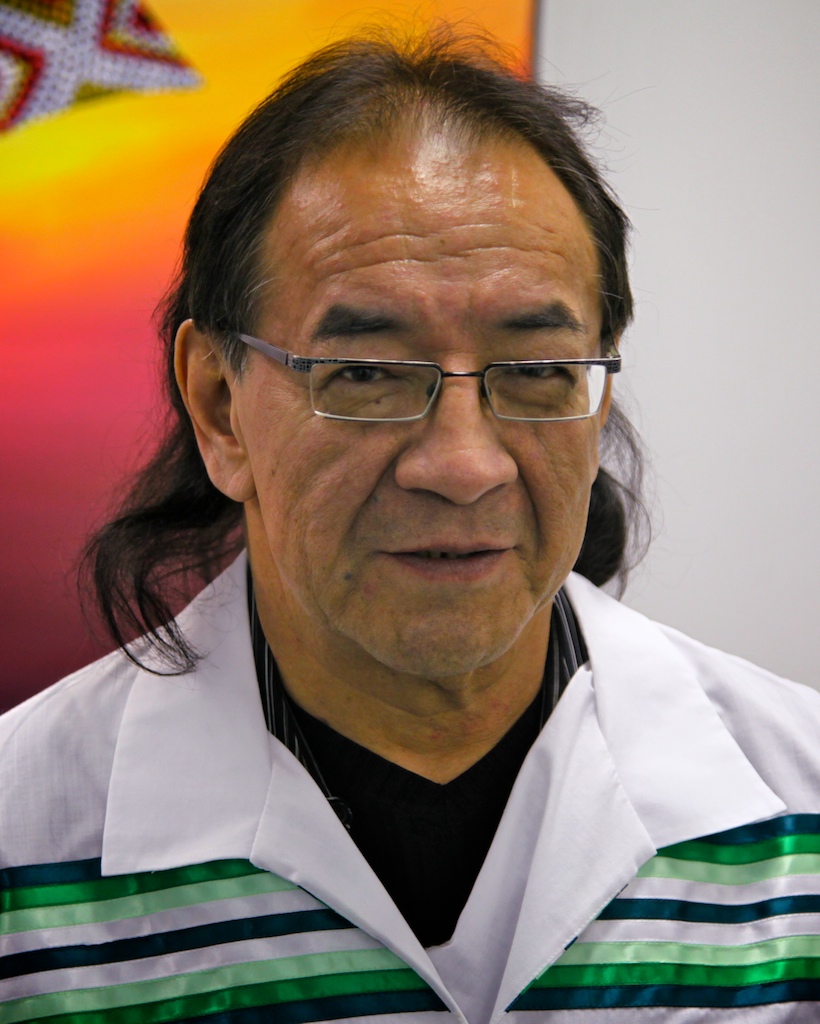
Dennis White Bird
Dennis White Bird is an Anishinabae from the Rolling River First Nation, which is in Treaty 4 Territory, and is proud to say that the Anishinabae language is his first language.
Mr. White Bird worked as a teacher for seven years before he was called to take a leadership role within his community. During his 18 years as the Chief of Rolling River, he successfully negotiated a Treaty Land Entitlement agreement with Canada and Manitoba. His community was the first to ratify the agreement.
Upon leaving the position within his community, Mr. White Bird’s leadership responsibilities grew as he was elected as Regional Chief for the Manitoba region within the national First Nation organization: the Assembly of First Nations. As Regional Chief, he was appointed the Executive Member in Charge of Treaties and was very involved in the promotion of First Nation languages.
Mr. White Bird was elected to the position of Grand Chief of the Assembly of Manitoba Chiefs in August 2000. Throughout his term as Grand Chief, he showed a strong interest in promoting First Nations youth issues and worked closely with the Manitoba First Nations Youth Council, an initiative of the Assembly of Manitoba Chiefs.
Mr. White Bird was appointed Treaty Relations Commissioner for Manitoba, by a federal Order-in-Council, from 2005 to 2010. The appointment was a natural progression for a man who has shown a great interest and dedication to the fulfillment of the true spirit and intent of the Treaty relationship and the education of both First Nation and non-First Nation youth.
Topics:
- Treaties and Treaty Relationship
- Oral History & Language
- Legal Aspects
- Treaty Education
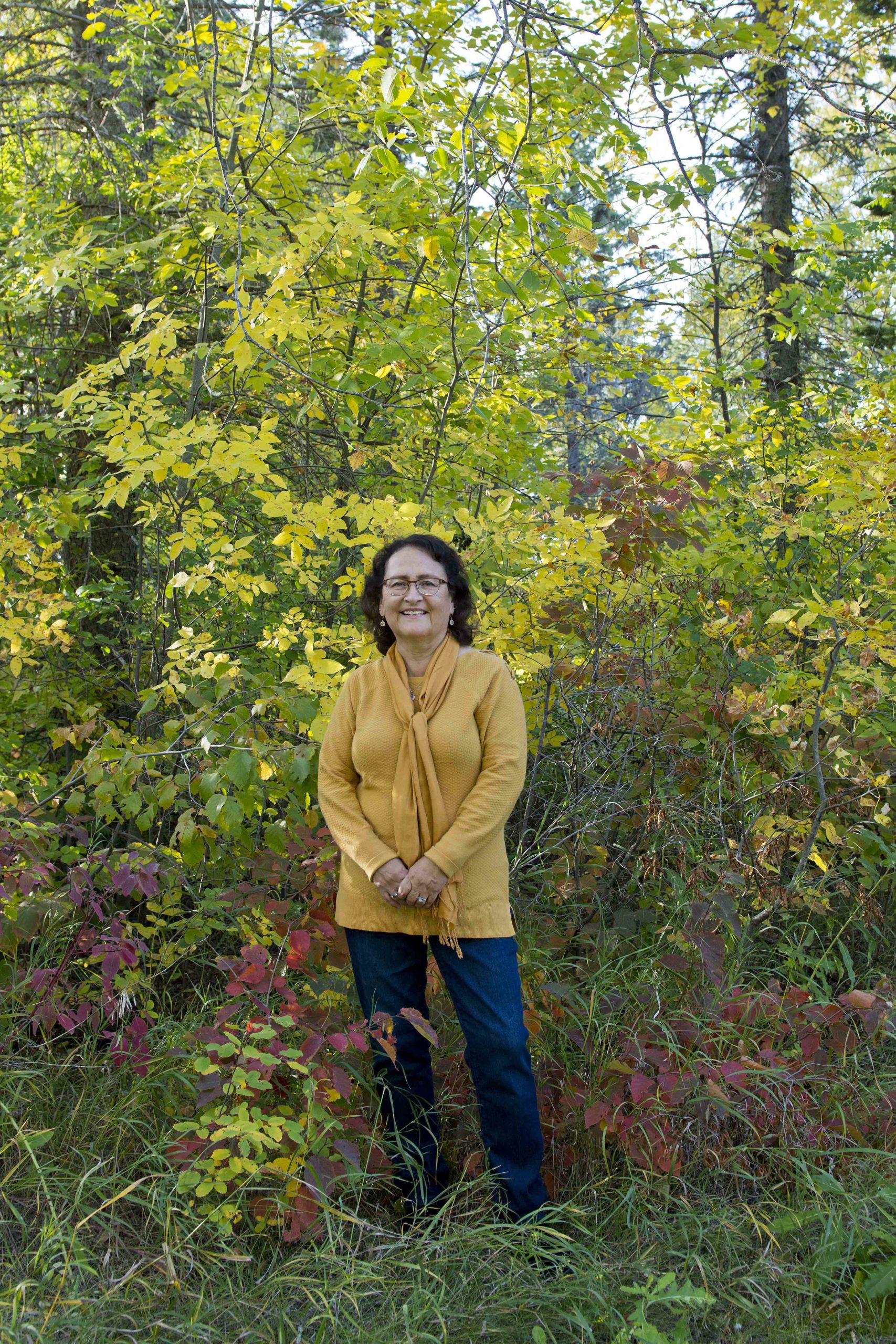
Marlene Gallagher
Marlene Gallagher is an Anishinaabe Ikwe from Sagkeeng First Nation. Marlene attended residential school and has a good understanding of the Child Welfare System in Manitoba and its long-term impacts on children and families. She speaks Anishinaabe Ojibwa and takes part in various cultural practices and ceremonies.
Marlene possesses a Bachelor of Arts; Bachelor of Education degree’s with double majors in History & English; a Bachelor of Arts Honours degree in History from the University of Winnipeg; and a Masters of Education degree from the University of Manitoba. Marlene is a Regent for the University of Winnipeg Board of Regents and a Board member for the St. Norbert Behavioural Health Foundation.
Marlene previously worked as an Education Consultant for the Province of Manitoba. In this position, Marlene’s portfolio included working closely with schools throughout Manitoba to support Aboriginal Education, Cultural Awareness and Community Partnership Initiatives. Marlene is currently an Independent Consultant and a current member of the speaker’s bureau for the Treaty Relations Commission of Manitoba.
Topics:
- Residential Schools & the 60’s Scoop
- Traditional Cultural Practices & Ceremony
- Historical and Contemporary Issues
- Aboriginal Education
- Traditional plants, uses, gardening, storing & preserving, & seed harvesting
- Missing & Murdered Indigenous Women & Girls
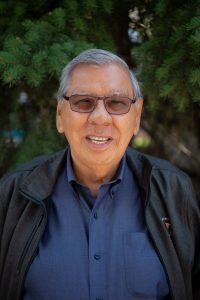
Elder Harry Bone
Elder Harry Bone has worked tirelessly and quietly throughout his life to bolster Indigenous rights. He is a member of Keeseekoowenin Ojibway Nation, where he served as a Chief and Director of Education. He also worked as a CEO at the West Region Tribal Council and as a Director of the Manitoba Indian Education Authority. While a graduate student in political studies at University of Manitoba he was a Student Advisor and Lecturer. Elder Bone was also a Director of Native Programs for the Federal Government and he served as a Vice-President of Aboriginal Cultural Centres of Canada. Elder Bone is currently a member of the Assembly of Manitoba Chiefs Elders Council where he continues to be the Chairperson of his colleagues.
Elder Bone’s expertise in First Nations governance at the community level is well regarded. He has led delegations that have met with all levels of government and has been instrumental in furthering many projects for the benefit of all Manitobans, such as the Oral History Project and the Historical Atlas of First Nations in Manitoba. Elder Bone and Elder Doris Pratt co-authored Untuwe Pi Kin He – Who We are: Treaty Elders’ Teachings Volume, a book that documents the traditional laws and customs of Indigenous peoples in Manitoba in a way that is accessible to all interested readers; it is not a revision of history but rather a retelling of history from Indigenous historians, giving them an opportunity to reclaim words and inject new power into them. Like Elder Bone, the book aims to inspire people through compassion, reason, humility and human dignity.
His distinguished achievements in leadership, scholarship and public service have been widely recognized by the many individuals and communities who have touched by his work. The University of Manitoba honoured Elder Bone with an Honorary Doctor of Law degree for his tireless and trendsetting work that continues to advance Aboriginal education in Canada.
In December 2017, Elder Bone was announced as an appointee to the Order of Canada “for his contributions to advancing Indigenous education and preserving traditional laws, and for creating bridges between Indigenous and non-Indigenous people and communities.”
Topics:
- Spirit and Intent of Treaties
- First Nations’ Perspective, Oral History, Language, 7 Principles of Nationhood
- Importance of Treaty Education
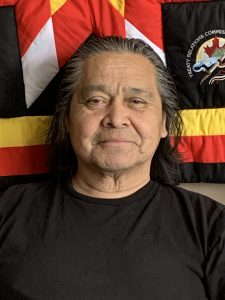
Elder Peter Atkinson
Daabaasanaqwat ‘Lowcloud’ aka Peter Atkinson of the Turtle Clan resides in his Ojibway home community of Baagwaanish Giiziibii, Ragweed River, aka Roseau River Anishinabe Nation. He speaks and understands his Ojibway language. With great pride and hard work, he stands as a 2nd Degree Midewiwin.
Lowcloud is presently the Head Spokesperson of the Fish Clan. As a very knowledgeable and strong believer of the original form of Anishinabe Governance; the Clan System, it is in prayer that all Anishinabe continue to learn and understand where we come from.
Lowcloud is a proud Great Grandfather for Meymeynoosh, a grandfather, and father of two sons, three traditionally adopted sons and one daughter. With continued determination and encouragement to help all his Anishinabe relatives, near and far, his work involves awareness of all ceremonies and continued assistance with spiritual help.
This also includes; sweat lodges, spirit naming, clan retrieval, cleansing of homes, Sundance; presentations includes university and school cultural awareness, treaties, languages, traditional camp for young Anishinabe, spirituality teachings and encouraging all Anishinabe Nations to understand and practice all the gifts that Giishey Mani doo has given us.
Lowcloud will always have a very strong voice to retain, for our future generations, to understand and preserve, our Anishinabe way of life.
Topics:
- Oral History
- Creation Story
- Anishinaabe Clan System
- Pipe Ceremony Teachings
- Elder Perspective on Treaties & Treaty relationship
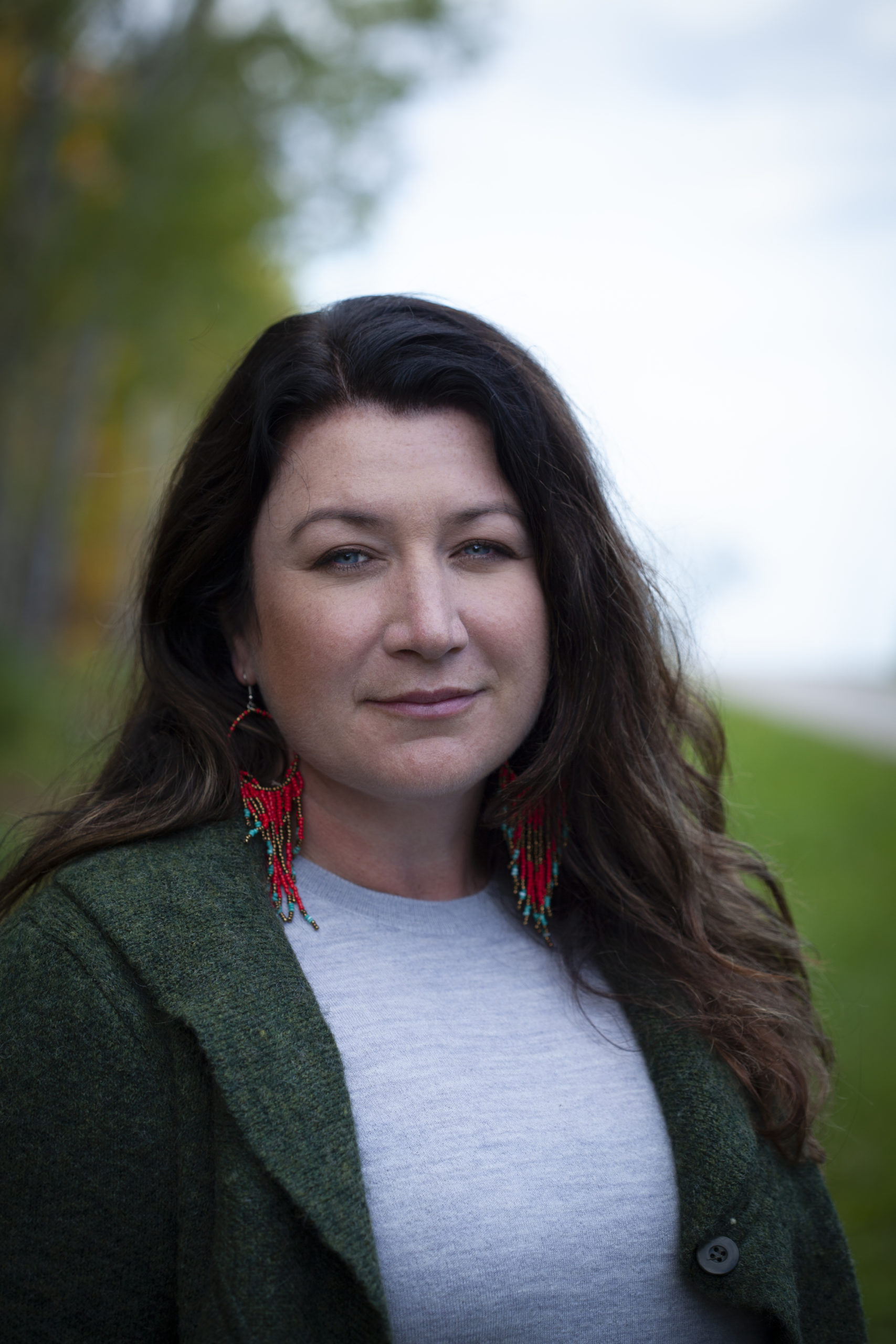
Aimée Craft
Aimée Craft is an award-winning teacher and researcher, recognized internationally as a leader in the area of Indigenous laws, treaties and water. She prioritizes Indigenous-lead and interdisciplinary research, including through visual arts and film, co-leads a series of major research grants on Decolonizing Water Governance and works with many Indigenous nations and communities on Indigenous relationships with and responsibilities to nibi, water. She plays an active role in international collaborations relating to transformative memory in colonial contexts and relating to the reclamation of Indigenous birthing practices as expressions of territorial sovereignty.
Prof. Craft is an Associate Professor at the Faculty of Common law, University of Ottawa and an Indigenous, Anishinaabe-Métis lawyer from Treaty 1 territory in Manitoba. She is the former Director of Research at the National Inquiry into Missing and Murdered Indigenous Women and Girls and the founding Director of Research at the National Centre for Truth and Reconciliation. She practiced at the Public Interest Law Centre for over a decade and in 2016 she was voted one of the top 25 most influential lawyers in Canada. In 2021 she was awarded the prestigious Canadian Bar Association President’s Award.
Breathing Life Into the Stone Fort Treaty, her award-winning book, focuses on understanding and interpreting treaties from an Anishinaabe inaakonigewin legal perspective. She is past chair of the Aboriginal Law Section of the Canadian Bar Association and a current member of the Speaker’s Bureau of the Treaty Relations Commission of Manitoba.
Treaty Words, her critically acclaimed children’s book, explains treaty philosophy and relationships.
She is past chair of the Aboriginal Law Section of the Canadian Bar Association and a current member of the Speaker’s Bureau of the Treaty Relations Commission of Manitoba.
Topics:
- Legal Aspects of Treaties & Treaty relationship
- Indigenous laws and Treaties
- Treaty No. 1
- French Presentation – Treaties & Treaty relationship
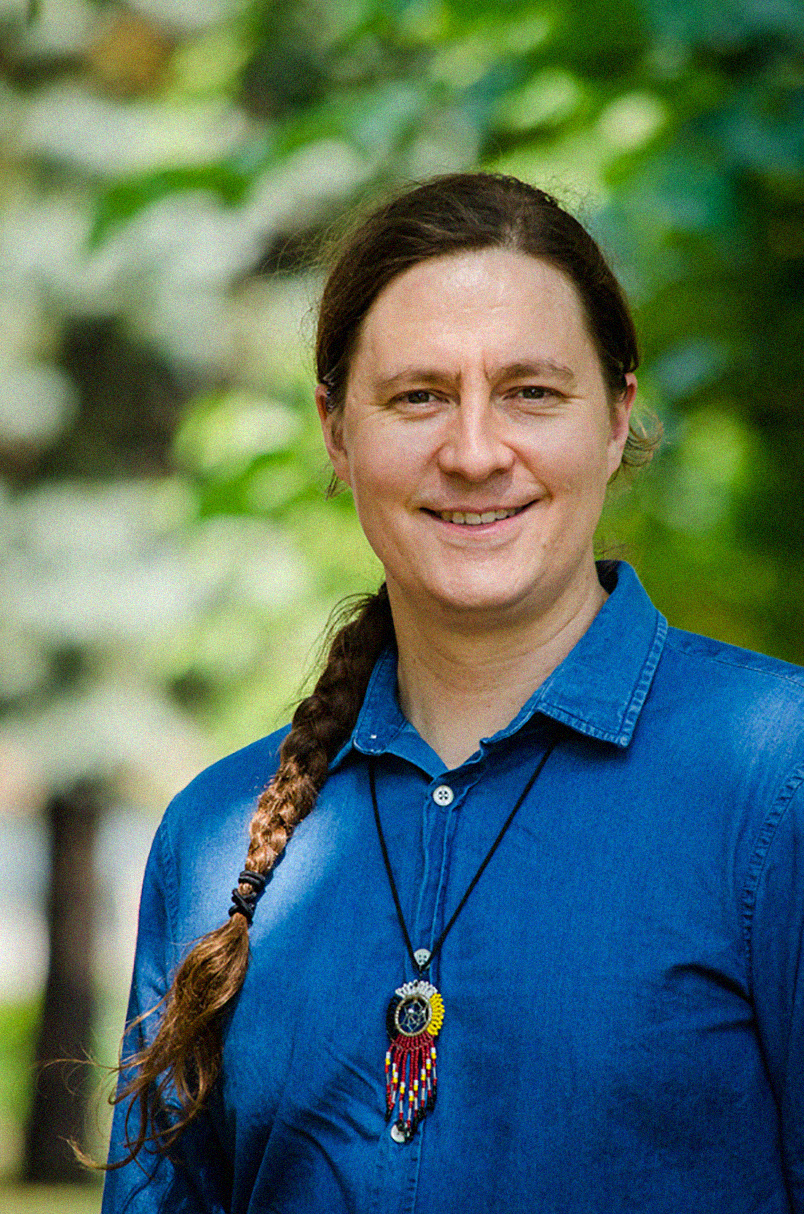
Aaron Mills
Aaron Mills (JD Toronto, LLM Yale, PhD UVic) is an Anishinaabe from Couchiching First Nation in Treaty #3 Territory. He works to renew Anishinaabe law, Anishinaabe constitutionalism, and treaty relationships today. He has spent much of the last 15 years learning about Anishinaabe law in Anishinaabe communities, on the land, and from Anishinaabe knowledge-holders. Aaron joined McGill Law as an Assistant Professor in 2018 and is the Canada Research Chair in Indigenous Constitutionalism and Philosophy. As a community-engaged scholar, Aaron works with indigenous individuals, communities, and organizations on projects related to indigenous law and to treaty.
Topics:
- Anishinaabe law
- Treaties from Indigenous Law perspective
- Treaty of Niagara, 1764
- Sharing circles

Ivana Yellowback
Ivana Yellowback is a member of Manto Sipi Cree Nation – God’s River (maternal family) located in Treaty 5 (Adhesion) and a relative to Mathias Colomb Cree Nation (paternal family) located in Treaty 6.
Ivana is both Asiniskow Ithinew ekwa Muskego Ininew (High Rock and Muskeg Cree). She holds a 4-year Bachelor of Arts HONOURS degree at the University of Winnipeg (4-Year Honours BA: Sociology, Minor: Conflict Resolution Studies), and a Bachelor of Social Work degree at the University of Manitoba.
Ivana is the Cree host, and English co-host of Eagle Vision’s and APTN’s 7TH GEN Home (7thgen.ca) \ Cree Webisodes | 7TH GEN(2022/2023). She has also acted as principal characters in “DJ Burnt Bannock” (2021) The Team — DJ Burnt Bannock, along with “Little Bird” (2023) ‘Little Bird,’ From Fremantle, Rezolution: Jennifer Podemski Talks – Variety.
Ivana is an Executive Training Facilitator (with Indigenous Leadership Development Institute Inc.), an executive board member for sakihiwe festival. She is also a trained Traditional Family Parenting facilitator, a Grief and Loss Facilitator, and Indigenous Life Skills Coach. Ivana’s most important roles and work is being an aunty, pipe carrier, lodge carrier, drum carrier and singer.

Hani A. Al-Ubeady
Hani A. Al-Ubeady has an extensive experience working with the ethnically-diverse populations in Manitoba. A co-founder of the Ethno-cultural Council of Manitoba-Stronger Together. Hani pioneered and directed the first comprehensive Indigenous Orientation Tool Kit project for the settlement sector in Manitoba and beyond. He is a Certified Canadian Counsellor and Registered Marriage and Family therapist. He is a regulated Immigration Consultant. Hani has been serving the settlement and integration sector for over 20 years. Hani’s current work as a Cross Cultural Mental Health Specialist with the Winnipeg Regional Health Authority, is to facilitate connections and bridge the formal mental health system with ethnically-diverse newcomer population in Winnipeg. Hani is the co-founder of the Community Engaged Research on Immigration Network (CERI Network). He is the co-creator of the Indigenous Turtle Island Project “TIP” (experiential reconciliatory learning activity). As a skilled trainer and facilitator, Hani trained hundreds of professionals in diverse work fields and settings. Hani finished his university degrees in the fields of Political Science, Religion and Culture, Immigration Consultancy, and Marriage and Family Therapy. Hani has an extensive experience in the mental health and family therapy work, his culturally/spiritually-based therapy work include working with trauma-impacted couples, families, individuals and groups. As a registered family therapist, his goal is to change the world “one family at a time”
